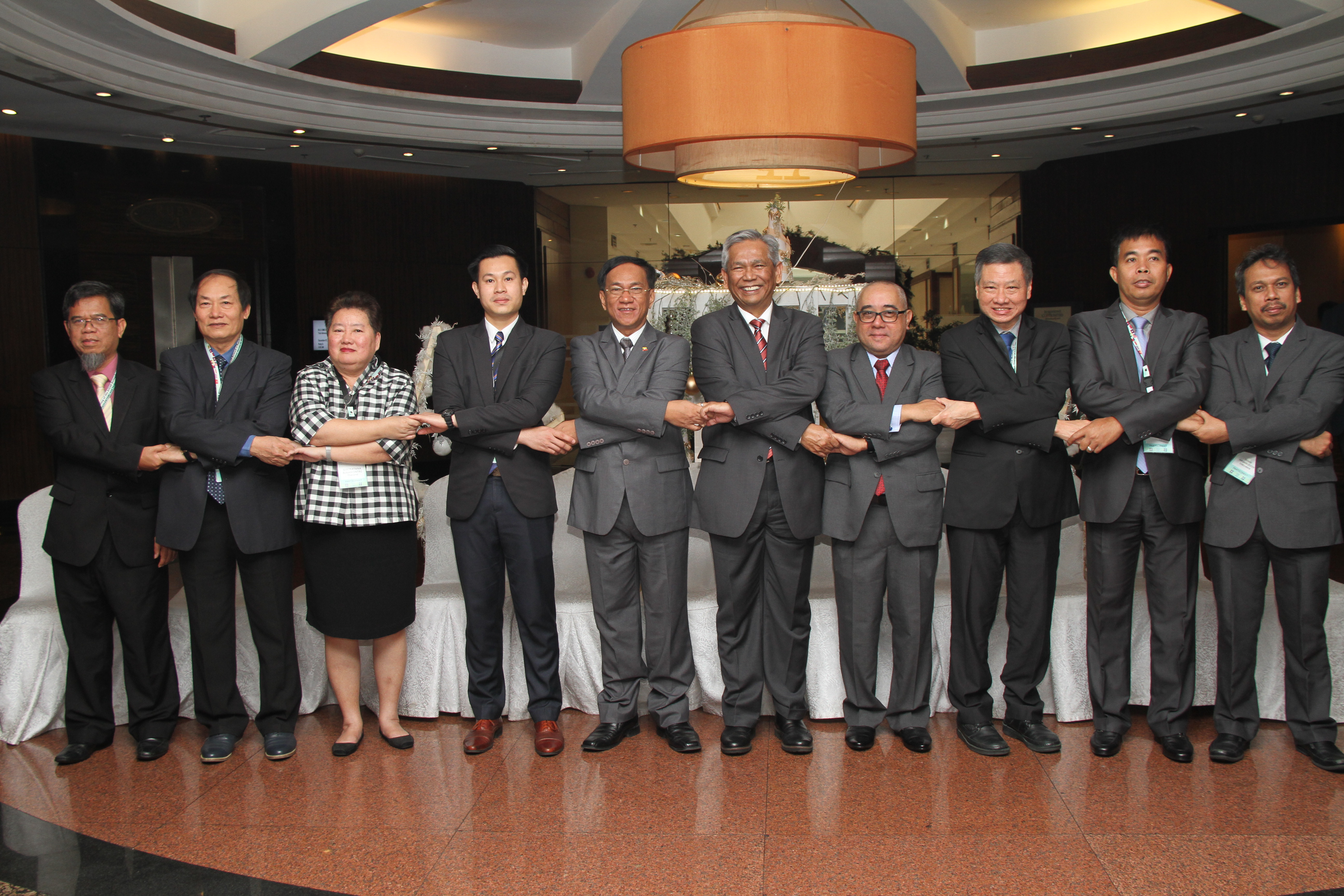Philippines Successfully Hosts 4th ASEANTOM Annual Meeting
- Details
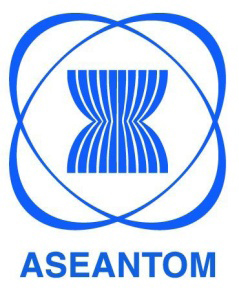
The various heads and representatives of nuclear regulatory bodies in Southeast Asia performing the iconic ASEAN handshake during the opening of the 4th Annual Meeting of the ASEAN Network of Regulatory Bodies on Atomic Energy (ASEANTOM) on December 7 at the Crowne Plaza Manila Galleria in Quezon City.
From left: Mr. Mohd Pauzi Mohd Sobari of Malaysia, Mr. Van Vinh Tran of Vietnam, Ms. Siriratana Biramontri of Thailand, Mr. Phonesavanh Lathdavong of Lao PDR, Mr. Khin Maung Latt of Myanmar, International Atomic Energy Agency (IAEA) Division of Nuclear Security Director Mr. Raja Abdul Aziz Raja Adnan, Mr. Carlo Arcilla of the Philippines, Mr. Kim Hock Koh of Singapore, Mr. Sodavath Chan of Cambodia and Mr. Ishak Hasanuddin of Indonesia.
Philippines Succesfully Hosts 4th ASEANTOM Annual Meeting
Representatives from the various nuclear regulatory bodies of the Association of Southeast Asian Nations (ASEAN) met in the Philippines as it hosted the 4th Annual ASEANTOM Meeting and Technical Session on Nuclear Security on December 7 to 8, 2017 at the Crowne Plaza Manila Galleria in Quezon City.
The ASEANTOM, or ASEAN Network of Regulatory Bodies on Atomic Energy, was established in 2013 to strengthen nuclear safety, security, and safeguards by enhancing cooperation and complementing the work among the ASEAN countries with the existing mechanisms at the national, regional, and international levels.
The countries participating in the ASEANTOM are Brunei Darussalam, Cambodia, Indonesia, Lao People's Democratic Republic, Malaysia, Myanmar, Philippines, Singapore, Thailand and Vietnam.
Aside from the annual meeting, the event also included technical sessions that will discuss on matters such as the current status of nuclear security in each ASEAN country, the role of various networks such as the International Atomic Energy Agency (IAEA) Global Nuclear Safety and Security Network (GNSSN) and Asian Nuclear Safety Network (ANSN), the strengthening of partnerships with other countries such as the USA, European Union, Canada, Australia, China, Japan and Korea, and future IAEA-supported projects on the security of radioactive sources throughout the ASEAN region.
The meeting was also sponsored in part by the Philippine Council for Industry, Energy and Emerging Technology Research and Development (PCIEERD).
After the two-day event, the visiting representatives from ASEAN countries visited the Bataan Nuclear Power Plant on December 9.
The PNRI serves as the Philippines’ regulatory body for nuclear and radioactive materials.
Substitute Bill for Nuclear Law Approved by House Joint Committee
- Details
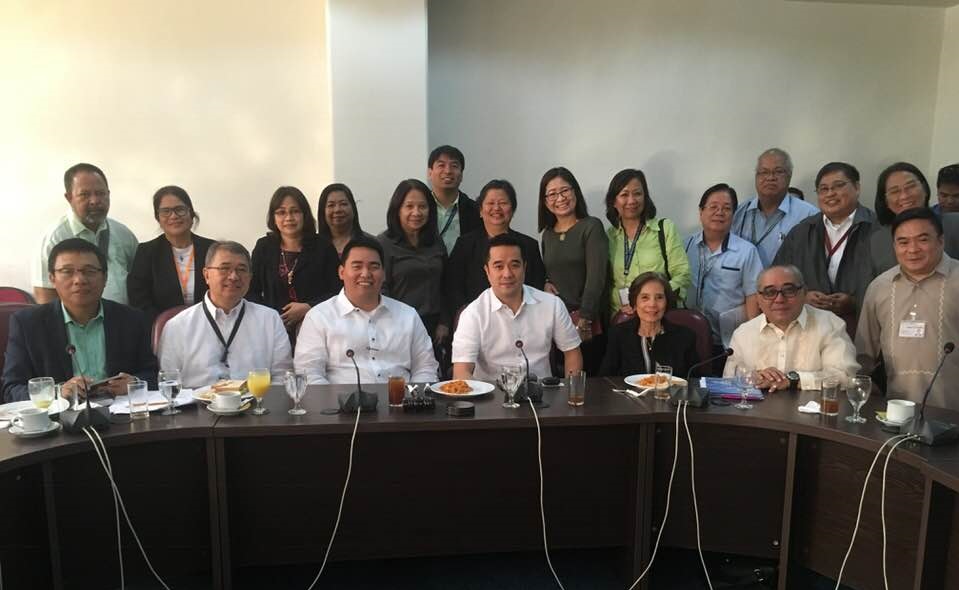
Representatives Xavier Jesus Romualdo and Francis Gerald Abaya (seated, 3rd and 4th from left, respectively), DOST Secretary Fortunato Dela Peña (seated, 2nd from left), DOE Assistant Secretary Atty. Gerardo Erquiza Jr. (seated, extreme left), PNRI Director Dr. Carlo Arcilla (seated, extreme right), former PNRI Director Dr. Alumanda Dela Rosa (seated, 2nd from right) and NPC Asset Preservation Manager Engr. Mauro Marcelo (2nd row, 4th from right) during the joint committee meeting of the House Committees on Government Reorganization and Science and Technology.
Substitute Bill for Nuclear Law Approved by House Joint Committee
A consolidated substitute bill for a Comprehensive Nuclear Law was recently approved at the joint committee meetings by the House Committees on Government Reorganization and Science and Technology on November 21, 2017.
The substitute bill, entitled “An Act Providing for a Comprehensive Nuclear Regulatory Framework, Creating for the Purpose, the Philippine Nuclear Regulatory Commission, and Appropriating Funds Therefor”, otherwise known as the Comprehensive Nuclear Regulation Act, is the consolidated version of seven separate bills previously filed at the House of Representatives.
The bill pushes for the creation of a unified independent regulatory body consistent with international standards for the regulation of all activities and facilities involving sources of ionizing radiation.
Currently, the Philippines has two regulatory bodies dealing with ionizing radiation: the Philippine Nuclear Research Institute (PNRI) under the Department of Science and Technology (DOST) which regulates nuclear and radioactive materials, and the Center for Device Regulation, Radiation Health and Research (CDRRHR) under the Food and Drug Administration (FDA) of the Department of Health (DOH), which regulates x-rays and devices producing electrically-generated radiation. In addition, the concurrent nuclear regulatory and promotional functions of the PNRI is potentially conflicted and not in agreement with international nuclear best practices.
Officials from the DOST, Department of Energy (DOE), the Department of Budget and Management (DBM) and the National Power Corporation (NPC) were present during the joint committee meeting.
A counterpart bill for the Comprehensive Nuclear Law is currently filed in the Senate by Senator Vicente Sotto III.
PNRI to Celebrate the 45th Atomic Energy Week
- Details
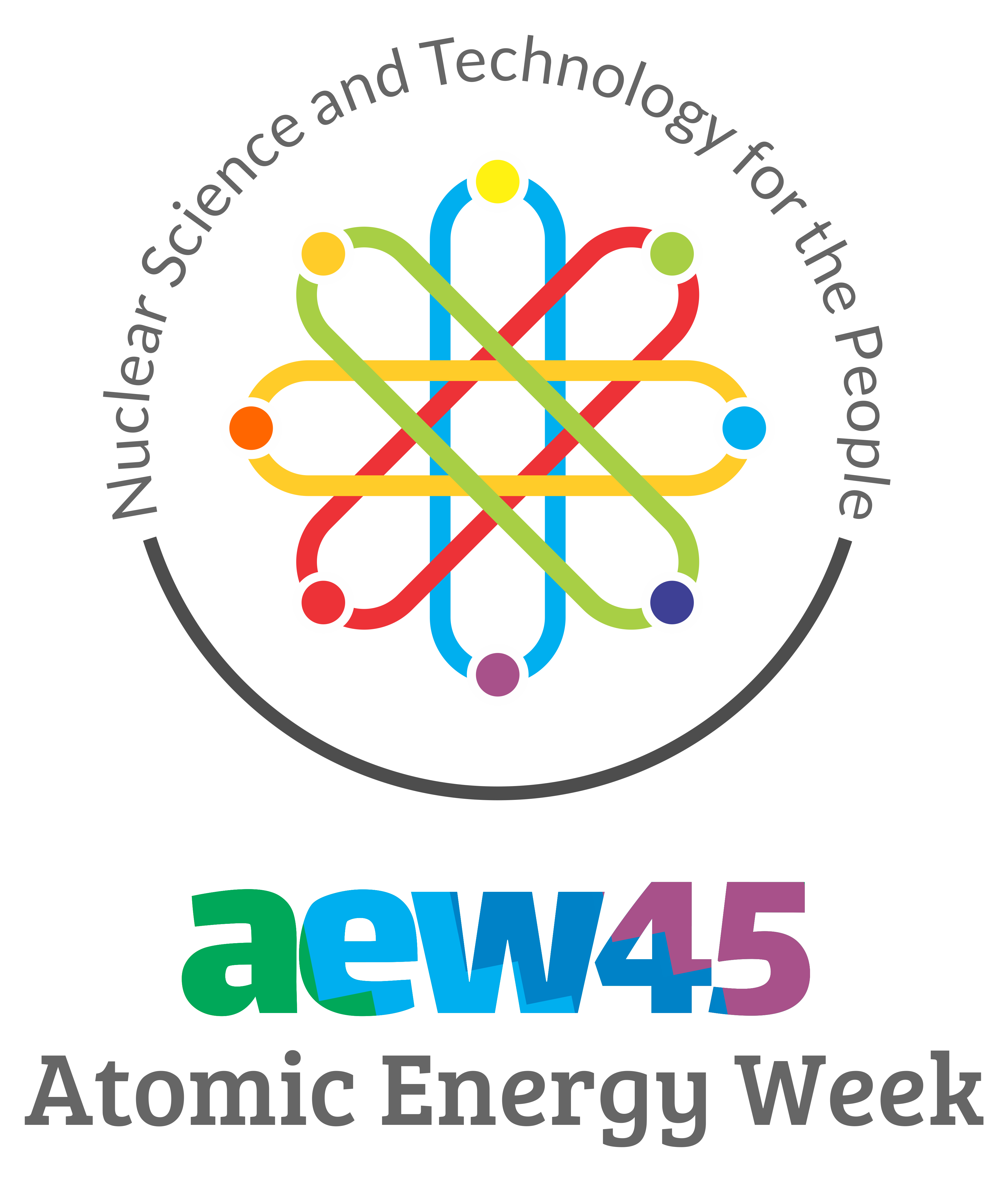
PNRI to Celebrate the 45th Atomic Energy Week
Bringing nuclear and radiation applications closer to the Filipino people, the Department of Science and Technology – Philippine Nuclear Research Institute (DOST-PNRI) will celebrate the 45th Atomic Energy Week (AEW) with the theme, “Nuclear Science and Technology for the People" from December 4-7, 2017 at the PNRI compound.
As with every year's celebration, PNRI will once again feature the latest advances in nuclear science and technology in the country in the fields of agriculture, industry, medicine, and the environment with an open-house showcase of several exhibits by PNRI scientists and researchers with free guided tours for all visitors.
Congressman Joey Salceda, one of the authors of the bill for a Comprehensive Nuclear Law, will be the keynote speaker on the Opening Ceremonies on December 4.
Experts from PNRI and other scientific institutions will give in-depth lectures on nuclear and radiation applications during the afternoon technical sessions on December 4, which will feature topics on nuclear power, and on December 5, which will feature topics on nuclear and radiation technology.
Senior high school students, teachers and young professionals will attend the Third Philippine Nuclear Youth Summit to be held on December 5 in tandem with the Young Generation of Filipino Nuclear Scientists (YGFNS), an organization of young Filipinos that aims to promote the practice of nuclear science and technology in the Philippines.
Student activities will continue with 34 teams of high school students representing the 17 regions in the country competing in the national level of the 2017 Philippine Nuclear Science Quiz (PNSQ) on December 6.
The annual AEW celebration, as mandated under Presidential proclamation No. 1211 in 1973, aims to generate awareness of the Filipino people on the beneficial uses of nuclear science and technology in food and agriculture, industry, medicine and the environment.
For more information, you may contact us at 9208787, or e-mail us at This email address is being protected from spambots. You need JavaScript enabled to view it. or visit our PNRI Facebook page at https://www.facebook.com/PNRIDOST/
Dr. Soledad Castañeda Takes Oath as New PNRI Deputy Director
- Details
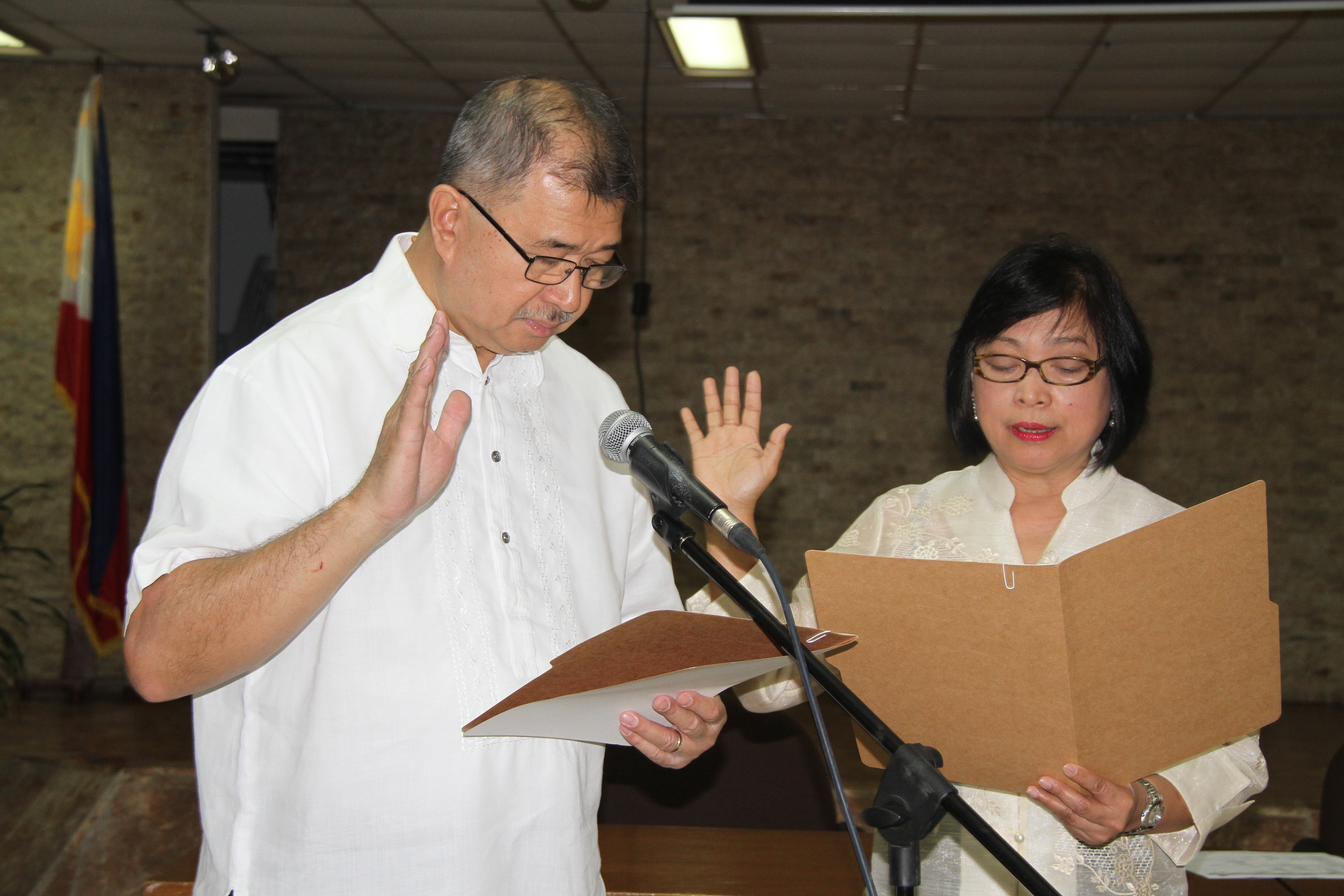
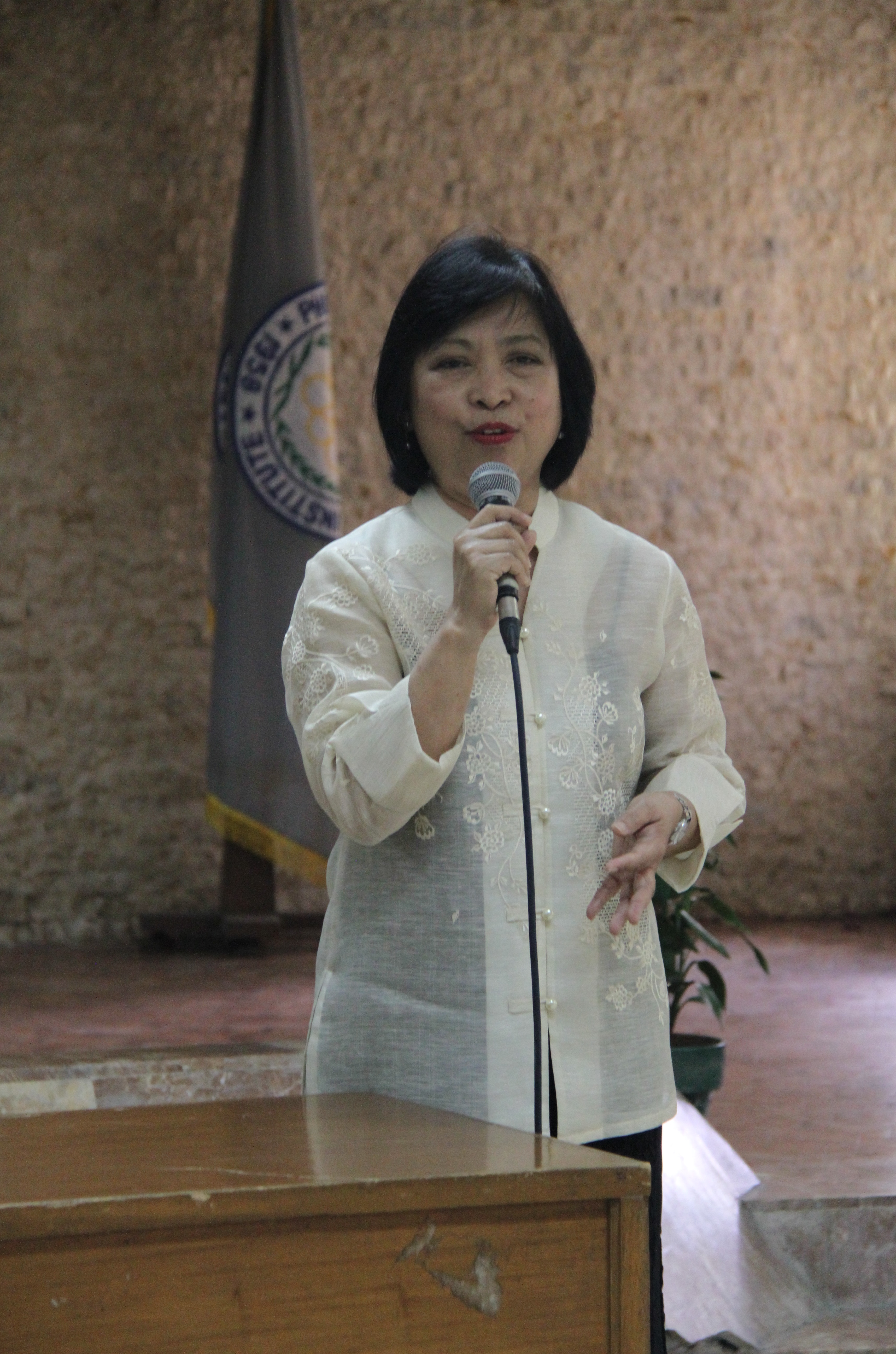
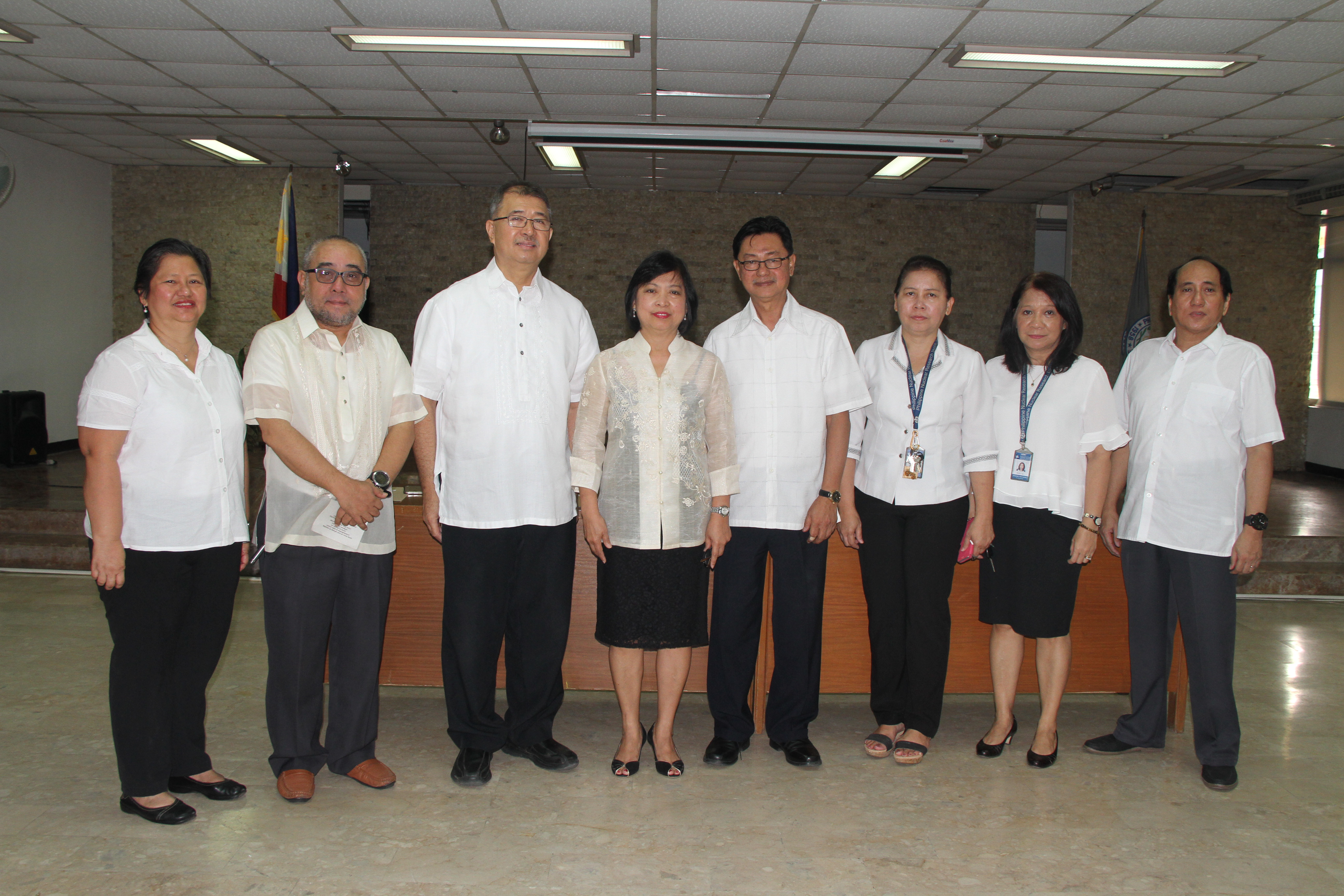
The Department of Science and Technology – Philippine Nuclear Research Institute (DOST-PNRI) congratulates Dr. Soledad Castañeda on her appointment as the Institute's new Deputy Director. DOST Secretary Fortunato Dela Pena administered the oathtaking on October 30. 2017 at the PNRI auditorium in the presence of PNRI Director Dr. Carlo Arcilla, the PNRI senior staff and the employees of the Institute.
Dr. Castañeda previously served as the Chief of the PNRI Atomic Research Division for several years. Her area of expertise includes nuclear and isotope techniques in environmental studies, hydrogeochemistry and analytical chemistry. She headed several projects on isotope applications in freshwater studies, nuclear and related techniques in air pollution studies and radioanalytical and non-radioanalytical measurements in various materials.


























